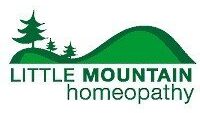
Radiation treatment and chemotherapy can sometimes be effective in killing cancer cells, but these treatments take their toll on the immune system. Because cancer is the result of a weak immune system, it is vitally important to strengthen the immune system in order to keep cancer away permanently.
Classical homeopathic treatment addresses the side effects of chemotherapy and radiation treatment naturally and effectively. Our remedies can alleviate chemotherapy and radiation side effects such as nausea, vomiting, fatigue, loss of appetite, depression, and skin complaints. Homeopathic treatments also build up the immune system once radiation and chemotherapy have been completed, which helps to prevent the recurrence of cancer.
Homeopathy does not antidote the positive effects of chemotherapy and radiation treatment. Remedies to build up the immune system will only be given after radiation and chemotherapy treatments have been fully completed.
Studies Prove Homeopathy Alleviates Chemotherapy and Radiation Side Effects
Dilutions of Apis mellifica (obtained from the whole bee) and Apium virus (obtained from bee venom) are used classically in homeopathy for inflammatory symptoms with edema, erythema and pruritus (Lewis triad). Using a method examining the evolution of UV induced erythema in the guinea pig, the authors show the following dilutions of Apis mellifica 7 CH(10(-14)), 9 CH(10(-18)) and of Apium virus 5 CH(10(-10)), 7 CH(10(-14)), 9 CH(10(-18)) exert an action on experimental erythema. The results are statistically significant for the dilutions at the 48th hour after irradiation.
Abstract
OBJECTIVE: To examine to what degree an ultra-highly diluted homeopathic remedy, Arnica Montana 30C (AM-30C), used in the treatment of shock and injury, can modulate the expression of nucleotide excision repair genes in Escherichia coli exposed to ultraviolet (UV) irradiation.
METHODS: E. coli were cultured to their log phase in a standard Luria-Bertani medium and then exposed to sublethal doses of UV irradiation at 25 and 50 J/m(2) for 22.5 and 45 s, respectively. The UV-exposed bacteria were then supplemented with either AM-30C (drug) or placebo (P-30C). The drug-treated and placebo-treated bacteria were subjected to assay for DNA damage and oxidative stress 90 min after UV exposure. Several protocols like comet assay, gel electrophoresis for DNA ladder and intracellular reactive oxygen species (ROS) generation, and biomarker measurement like superoxide dismutase (SOD), catalase (CAT) and reduced glutathione (GSH) were conducted. The mRNA expressions of the excision repair genes like ultraviolet repair uvrA, B and C genes (or also known as excision repair genes) were estimated by reverse transcription-polymerase chain reaction method.
RESULTS: The UV-exposed bacteria showed DNA damage and oxidative stress, as revealed by an increase in ROS generation, and a decrease in SOD, CAT and GSH activities. As compared to placebo, the AM-30C-treated bacteria showed less DNA damage and oxidative stress as manifested by a decrease in ROS generation, and an increase in SOD, CAT and GSH activities. AM-30C also up-regulated the expression of repair genes as compared to the control.
CONCLUSION: AM-30C helped repair the DNA damage through up-regulation of repair genes and also ameliorated the oxidative stress through the reduction of ROS generation and suitable modulation of anti-oxidative stress enzymes.
Cochrane Reviews investigate the effects of interventions for prevention, or treatment of illness, or rehabilitation from illness, in a healthcare setting. Most Cochrane Reviews are based on overviews of randomized controlled trials and other forms of evidence that are deemed to be appropriate. This review was conducted to determine what, if any, evidence (in the opinion of the Cochrane reviewers) exists for the treatment by homeopathy of the effects of conventional cancer therapies. A search through numerous databases revealed 8 controlled trials involved in this area of study, 7 of which were placebo controlled and 1 of which was against an active treatment. In total, the trials covered the outcomes of 664 people who’d been variously suffering from the adverse effects of radiotherapy, chemotherapy or breast cancer treatment. Of the 8, 2 trials exhibited beneficial effects from homeopathy. One of these involved a comparison between the effects of a topical corticosteroid and a homeopathic mother tincture of calendula for the prevention of dermatitis from radiotherapy where the calendula proved to be superior to the drug. The other involved the successful use of a homeopathic complex for stomatatitis caused by chemotherapy.
Khuda-Bukhsh, A.R., Banik, S. (1991a) “Assessment of Cytogenetic Damage in X-irradiated Mice and its Alteration by Oral Administration of Potentized Homeopathic Drug, Ginseng D200,” Berlin Journal of Research in Homeopathy, 1,4/5:254.
German researchers exposed albino mice to sub-lethal doses of x-ray. Homeopathic Ginseng and Ruta graveolens were given to the mice before and after exposure. Their condition was evaluated at 24, 48, and 72 hours. When compared with mice given a placebo, the homeopathic mice had significantly less chromosomal and cellular damage.
Kulkarni A, Nagarkar BM, Burde GS. “Radiation protection by use of homoeopathic medicines.” Proceedings from the 8thConference of Radiation Oncologists of India, Bombay, December 1986, reported in Hahnemann Homoeopath Sand, 1988 Jan,12, 1, 20-3.
82 patients receiving radiotherapy were randomly assigned to receive placebo, Cobaltum 30C or Causticum 30C as a means of assessing the effects of these against dermatological reactions to the radiotherapy. The homeopathic medicines provided a significant reduction in the degree of radiation reactions when compared to placebo
25 women suffering from post-radiotherapy induced itching were treated at the University of Vienna’s Department of Radiotherapy and Radiobiology using individualised homeopathic medicines. After assessment (1-27 days after beginning the treatment) it was found that homeopathic treatment had been successful in 21 of the women enrolled in the study.
